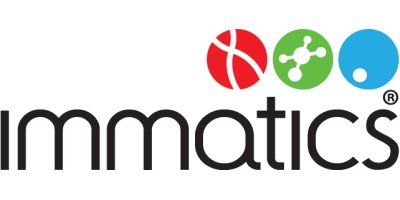

- Home
- Companies
- Immatics N.V.
- News
- Immatics Reports Clinical Responses ...
Immatics Reports Clinical Responses across Multiple Solid Tumor Types in Ongoing ACTengine® IMA203 Phase 1a Trial Targeting PRAME
Company to host conference call on Tuesday, November 9 at 8:30 am EST
- Dose escalation for cell therapy candidate ACTengine® IMA203 ongoing; dose level 3 completed at doses below 1 billion transduced cells
- Objective responses (RECIST 1.1) observed in 8/16 patients (50%) across multiple solid cancer types, with 8/13 responders (62%) treated at dose levels 2 and 3
- High T cell engraftment and persistence; clinical response associated with tumor infiltration
- Transient and manageable treatment-emergent adverse events; no higher-grade cytokine release syndrome or neurological toxicities observed
- IMA203 clinical data will be presented as late-breaking oral presentation at the SITC Annual Meeting on Saturday, November 13 at 12:00 pm EST
Houston, Texas and Tuebingen, Germany, November 9, 2021 – Immatics N.V. (NASDAQ: IMTX, “Immatics”), a clinical-stage biopharmaceutical company active in the discovery and development of T cell-redirecting cancer immunotherapies, today announced an interim clinical data update from its TCR-engineered cell therapy (TCR-T) approach ACTengine® IMA203 targeting PRAME. Data from patients treated at the first three of four dose levels of the ongoing IMA203 Phase 1a dose escalation study show a high preliminary objective response rate (partial responses according to RECIST 1.1) at doses below 1 billion total transduced cells. The data will be presented as a late-breaking oral presentation on Saturday, November 13 at 12:00-12:15 pm EST at the 36th Annual Meeting of the Society for Immunotherapy of Cancer (SITC). In addition, Immatics will present preclinical proof-of-concept data for its next-generation IMA203CD8 candidate at the SITC Annual Meeting on Friday, November 12 and will provide an overall update on all IMA200 programs including IMA201 (MAGEA4/A8) and IMA202 (MAGEA1) in a conference call on November 9, 2021 at 8:30 am EST.
Key clinical findings from IMA203 Phase 1a trial
In the ongoing ACTengine® IMA203 trial, Immatics is treating advanced solid cancer patients utilizing TCR-T cells directed against an HLA-A*02-presented peptide derived from preferentially expressed antigen in melanoma (PRAME). PRAME is homogenously expressed and highly prevalent across several solid cancer indications. The chosen PRAME target peptide has been identified by Immatics’ proprietary mass spectrometry-based target discovery platform XPRESIDENT®, demonstrating natural and specific occurrence of the target on tumors at high copy numbers.
Clinical and biological activity: IMA203 demonstrates objective responses (RECIST 1.1.) at low cellular doses across several solid cancer types
- At data cut-off on October 5, 2021, 18 patients received ACTengine® IMA203 T cells across dose level 1 (DL1) to dose level 4 (DL4).
- All patients were heavily pretreated with a median of 4 lines of prior systemic treatment.
- 16 patients were evaluable for tumor response analysis according to RECIST 1.1 with at least one post-treatment tumor assessment at the time of data cut-off. All 16 patients received dose levels 1 to 3 - below 1 billion total transduced cells. For the remaining 2 patients, the first tumor response assessment is still pending.
- 15 out of 16 patients (94%) achieved disease control. Tumor shrinkage was observed in 14 patients (88%).
- 8 out of 16 patients (50%) showed objective responses; onset of responses in all cases was detected within 6 weeks following infusion of IMA203 T cells.
- All responses occurred above DL1; 8 out of 13 patients (62%) treated at DL21 and DL3 receiving up to 0.59 billion total transduced cells had objective partial responses. Responses were observed in patients with synovial sarcoma, malignant melanoma, uveal melanoma, and head and neck cancer.
- As of data cut-off, partial responses were confirmed in subsequent scans in two synovial sarcoma patients and one uveal melanoma patient.
- Longer follow-up is required for patients infused at higher dose levels DL3 and DL4 are required to assess response durability and response rate at target dose.
- IMA203 continues to show high levels of T cell engraftment, persistence, and tumor infiltration at first three dose levels. Clinical response was associated (p=0.016) with infiltration of IMA203 T cells into the tumor tissue and showed an emerging trend towards higher peak vector copies of IMA203 T cells in blood (p=0.065) – supporting the mechanism-of-action.
- The ACTengine® IMA203 trial is currently recruiting patients to the 4th and highest dose level (up to approximately 2.5 billion total transduced cells) of the Phase 1a dose escalation cohort.
